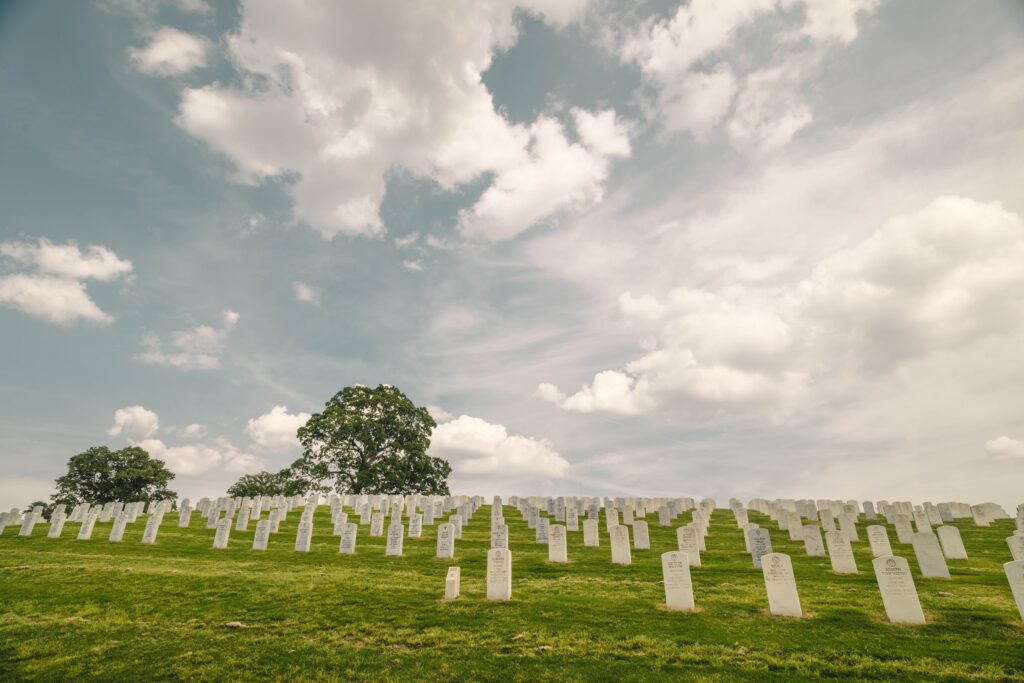⏱️ Estimated Reading Time: 6 min read
If you were to scour the less-than-famous books of the Old Testament, you would discover a peculiar statement in a peculiar book penned by a peculiar old man: “It is better to go to the house of mourning than to go to the house of feasting, for this is the end of all mankind, and the living will lay it to heart” (Ecclesiastes 7:2).
This verse comes to us from King Solomon, the son of David, who reigned over Israel and possessed wisdom so great that he literally took the breath away of other rulers in the ancient world (1 Kings 10:1-5). But when I reread Ecclesiastes 7:2, I feel myself beginning to doubt the wise old king.
Take a moment and picture a funeral. Silence. Tissues. Tears. Black dresses. Caskets. Eulogies. Hearses. Burials.
Now picture a wedding. Laughter. Bouquets. Bridal parties. White dresses. Rings. Vows. Receptions. Beginnings.
Why on earth would Solomon, a man hailed for such profound wisdom, say the former is better than the latter? Did he accidentally get the two mixed up? Should we give him a pass and move on to his next nugget of wisdom?
I don’t think so. Solomon is letting us in on a secret that few have discovered.
Why Mourning?
Funerals are an interesting animal. You sit in a pew, program in hand, listening to words spoken of the dearly departed. At first, as expected, a sense of mourning and loss envelopes you. Sometimes, the sorrow you feel may begin to be accompanied by curiosity. As you consider the remarks on the person who passed, you feel your conscience turning the microscope onto a most unwelcome subject: your life. Questions come to mind: “How much time do I have left? What kind of life am I living? What do I actually believe? What will be said of me when I’m the one in the casket?”
I don’t think Solomon told us he prefers mourning because he’s a sadistic guy. He was sharing a secret of immense value. However much we may dislike it, funerals force us to consider the reality of eternity. As we dab the tears from our eyes, we find ourselves in a front-row seat beholding the fate that awaits us all. Regardless of your worldview, lifestyle choice, or religious beliefs, death will one day knock at your door and let itself in. That’s a sobering reality.
No one at a wedding reception, clinking glasses and eating grilled chicken, considers that one day their life will end. At a funeral, however, we are brought to the precipice of eternity, and we must consider who we are. The introspection of our personality, the contemplation of our choices, the presupposition we have of what awaits us after death; these are inestimably more important than meals and maid-of-honor speeches. Solomon never says the house of feasting is bad; in fact, he would probably say it’s a great place to be. But the house of mourning is better. Why? Because the questions that shove their way to the forefront of our minds are better when we mourn than when we feast. At the wedding, we want to know, “How good is the food?” In the funeral service, we ask, “Am I ready for eternity?”
The Weird Ones
Hebrews chapter eleven is often renowned as “the roll call of faith.” In it, the writer recounts a star-studded cast of Bible characters, praising people like Abraham, Moses, Rahab, and David. These heroes of the faith “…conquered kingdoms, enforced justice, obtained promises, stopped the mouths of lions, quenched the power of fire, escaped the edge of the sword, were made strong out of weakness, became mighty in war, [and] put foreign armies to flight” (Hebrews 11:33-34).
That sounds pretty sweet. And it would be sweet if the chapter stopped there. Unfortunately, however, it goes on. We also learn that many of these faith-filled giants suffered terribly for their allegiance to God. Many endured “…mocking and flogging, and even chains and imprisonment. They were stoned, they were sawn in two, they were killed with the sword. They went about in skins of sheep and goats, destitute, afflicted, mistreated…” (Hebrews 11:36-37).
Okay, now being counted among the roll call of faith is starting to sound less sweet.
From the outside, these spiritual heroes may seem a bit odd. Many were willing to suffer horrible deaths, and one almost gets the feeling that they were okay with it. How is that possible?
Someone let them in on Solomon’s secret, and I think they took it to heart.
Those in the roll call of faith kept the important questions as paramount in their minds. They knew eternity was coming, and they sought to live their lives in a way that reverberated throughout Heaven and not merely on earth. Imagine the eulogy that would have been given for one of these remarkable folks:
“At times she suffered for her faith, being misunderstood and mistreated, but she never faltered. She truly loved Jesus, and knew that Jesus truly loved her. She was one who found a treasure greater than life itself, and in her joy she sold out entirely for it (Matthew 13:44). Her eyes were fixed on the things of heaven and not on the things of earth (Colossians 3:2). She had such a deep love for others and always sought to consider the needs of those around her as greater than her own (John 13:34; Philippians 2:3). She was truly one of whom the world was not worthy (Hebrews 11:38), and now she rejoices with her Savior in the place where death is no more.”
What Will be Said of You?
For believers in Jesus, we claim to have a hope that trumps everything else. We were radically lost sinners who have been radically rescued through the brutal death and mighty resurrection of the Lord Jesus Christ. In our redemption as new creatures, we have a hope that never flickers or fades. Jesus tells us that the life He gives us is not temporary but eternal. It transcends even death itself, and no one can take it away from us. Clinging to truths like that, I don’t believe we need to fear the funeral questions that so many others vehemently avoid. In fact, we would do well to keep them at the forefront of our minds. I have a note on my bathroom mirror that asks, “Am I living in light of eternity?” They aren’t always fun words to read, but I know they are needed to help keep the priorities of my life in proper order. Letting eternal questions guide our everyday lives will help ensure our sights are set on the way of Jesus and the bliss of Heaven with Him.
A peculiar old man gives us a peculiar statement in a peculiar book of the Old Testament. From His Scriptures, God is calling you to consider the eternal questions. What will be said of you when you die? Will you take to heart Solomon’s secret?




